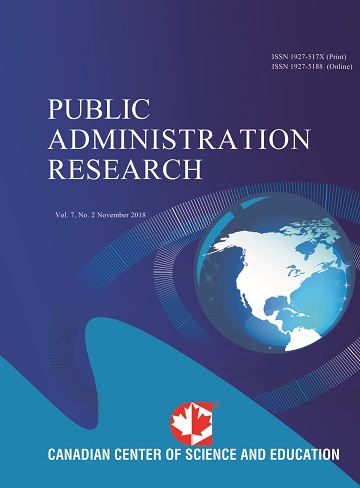Implementation of Business Policy to Increase Income for Family Welfare (IIFW) to Support Population Program in Indonesia
- Heru Irianto
- Haryono Haryono
- J. Andy Hartanto
- Rr Herini Siti Aisyah
Abstract
Population problems are closely related to the economic and social conditions of the people due to the lower level of education and economy so that the awareness to follow the family planning program is low and lacks access to the available facilities and information. The independence of the family's economic is very important, considering that poverty not only affects the economic problems but also impacts on other issues such as life attitudes, family education, health and others which greatly influence the improvement of the quality of the human resources in Indonesia. In implementing the policy, synergicity of various elements of government institutions, communities, business institutions, such as working training centers, financial institutions, business and educational institutions and non-governmental organizations (NGOs), as well as mass media is strongly needed. With the paradigm of mutualistic symbiosis, the business continuity will be more secure and be able to support and promote each other for the same sake of developing and improving the condition through IIFW. In the era of regional autonomy in Indonesia, all existing local potential can be explored thoroughly to establish the synergicity so that the improvement of the economy in the region, especially, in the areas of the poor can be reached.- Full Text:
 PDF
PDF
- DOI:10.5539/par.v7n1p51
Journal Metrics
h-index (2017): 7
i10-index (2017): 6
h5-index (2017): 7
h5-median (2017): 13
Index
- COPAC
- CrossRef
- DTU Library
- EBSCOhost
- EuroPub Database
- Excellence in Research for Australia (ERA)
- Genamics JournalSeek
- Ghent University Library
- Google Scholar
- Harvard Library
- Infotrieve
- Jisc Library Hub Discover
- LOCKSS
- Mir@bel
- Norwegian Centre for Research Data (NSD)
- Open J-Gate
- PKP Open Archives Harvester
- Publons
- ROAD
- Scilit
- SHERPA/RoMEO
- Stanford Libraries
- Ulrich's
- UniCat
- Universe Digital Library
- UoS Library
- WorldCat
Contact
- Gabriel TaiEditorial Assistant
- par@ccsenet.org
